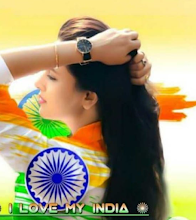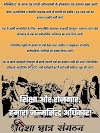Extolling the virtues of Indian chai is one thing, but in that process, Miss India does not quite humanise the story, and even when it does, it does not capitalise on that. It is too confused about what it wants to say or rather, serve.

Language: Telugu
In Narendra Nath’s India, a young girl makes it a point to tell everyone what her name and aim in life is — She is Manasa Samyuktha, and her aim is to start a business after she finishes her MBA. This, she decides, is her goal in life when her father refuses to acknowledge her grades in school because she does not have a goal. Perhaps, the girl is not even 10 years old at this point of time. The pressure is immense, but not atypical. By the time she is in her early 20s, even after moving to San Francisco, she still tells people her name is Manasa Samyuktha (not Manasa or Samyuktha), and that she wants to start a business soon. Now, everyone around her reminds her that she is a woman, and that business is not her cup of tea. But Manasa Samyuktha makes her stand clear — “Coffee is not her cup of tea." '
And thus begins the ordeal which is so silly, boring, and bland that there are better chances of you learning all about tea by the time this film comes to an end.
The story is built around a core idea, where a female entrepreneur faces sexism, and surpasses expectations and conservative mindsets to achieve her dreams. But with each layer that writers Nath and Tharun add to this brew, it just weakens everything that it wants to say. In the beginning, we are told that Manasa Samyuktha is from a middle-class family in Lambasingi, near Araku (Andhra Pradesh). Her grandfather is an Ayurvedic doctor, whose special concoction mixed with all sorts of spices (tea) cures all sorts of illnesses. But when tragedy strikes the family, Manasa’s elder brother takes over the family responsibility. Thanks to his job, the family moves to San Francisco, where, for some reason, they manage to move into a villa, of sorts. Clearly, the young techie is doing well for himself and earning a good pay-check. But wait... the tea is still brewing.
The only reason why the story is set in the US is because she has to start a business for which there is no market. Since coffee is a preferred beverage over tea in the US, it becomes an interesting landscape to explore. Or so you think!
In an age where most Americans, especially those on the West Coast and East Coast, have at least heard about Chai Tea Latte, Miss India makes its protagonist sound like she has just landed from a ship in Boston and is trying to sell tea to the local population back in the 17th century. Manasa invites everyone for a ‘Chai ceremony’ to talk about the benefits of Indian chai, but the film really makes you want to celebrate ‘Boston Tea Party’ instead.
The storytelling is so bland that you almost empathise with the fate of the actors delivering their lines without an iota of interest or verve. They all needed a strong cup of chai. Or at least an Americano, even from Miss India’s arch rival KSK company, to keep themselves awake.
The actor who suffers the most from this sort of a fatigue is Keerthy Suresh herself. There is so much she wants to say through the character, and she puts up a brave front several times. Every time she is reminded that she is a woman, and hence cannot do a lot of things, she rises up to the occasion to prove what she is capable of. But then, her dialogues sound more like Confucius’s quotes that you are more likely to find in a fortune cookie. It’s quite tiresome to soak it all in, even while the chai keeps brewing
Miss India is packed with a lot of surprises. A case in point being, midway through the film, Manasa suddenly becomes a ‘mass character.' Her dreams of making chai have to face the heat of KSK’s coffee empire. They are like Yin and Yang; tea and coffee. She tells him that her chai is 10 times better than his company’s coffee. Who in their right frame of mind compares chai and coffee, especially in terms of taste! The surprises keep coming. He writes her a cheque of $1000 for her expenses, and after racking her brains over how to use that money, she ends up printing brochures to advertise about an event she wants to host. It reminded me of a scene in Rajinikanth-starrer Sivaji, where Adiseshan (Suman) throws a Re 1 coin at Sivaji (Rajnikanth), which the latter uses quite inventively to get back at Adiseshan. $1000 is quite a lot of money compared to Re 1. Just saying!
Jagapathi Babu, who plays KSK, reminds himself that Miss India is a startup, but less than a month later, he turns his company’s outlets into Hooters filled with bikini-clad women to withstand the competition. Looking at the way the story unfolds, instead of rooting for Manasa’s Miss India, you will start wishing that KSK’s company goes bankrupt quickly. Because at least then, this astoundingly bland and sloppily-written film will come to an end.
After brewing for so long, by the time the chai is served, one is more likely to lose interest completely. It is hard to believe that the film is set in the US because even the supporting characters do not seem convinced, leave alone the lead characters. Extolling the virtues of Indian chai is one thing, but in that process, Miss India does not quite humanise the story, and even when it does, it does not capitalise on that. It is too confused about what it wants to say or rather, serve.



















0 टिप्पणियाँ